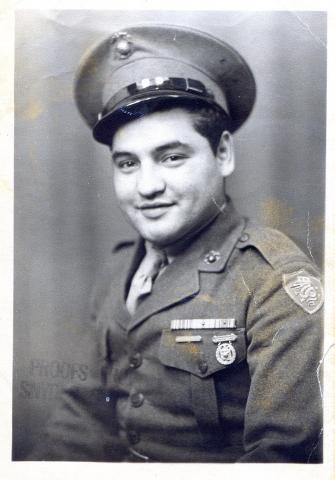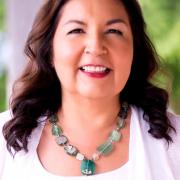
My father
It is a hot, humid midsummer afternoon in 1967. My mom, younger brother, sister, and I are in the kitchen having a tall glass of ice-cold Kool-Aid. There is a knock on the door. Two police officers are standing on our doorstep.
One officer asks my mom, “Are you Mrs. Sanchez, the wife of Philip Sanchez?”
“Yes”.
“Ma’am, may we come in?” My mom opens the door, leading them into the living room. The policeman pauses, then says, “I’m very sorry to tell you that your husband was in an accident, and he was killed at the scene.”
I stand there dazed.
“Mrs. Sanchez, it appears earlier today a white man and a black man had a heated argument in the bar around the corner from here. Your husband entered this bar several hours later and sat on the stool where earlier the black man had sat while arguing with the white patron.
“It appears the white man returned to the bar, saw your husband’s dark skin, and fired two shots. Your husband was pronounced dead at the scene.”
I am 13 years old when my father is murdered. This devastating news sends violent shockwaves throughout our extended family and community who rally around us in support.
A few days after the funeral, there is a knock at the door. A slender white woman and a young boy about my age standing on our small wood porch.
The woman introduces herself to my mom as the wife, and the young boy as the son, of the man who murdered my father. She continues, “I am sorry to bother you, Mrs. Sanchez, but I just had to tell you that my husband is a good man. He would never have killed your husband if he knew that he was Mexican. My husband thought he was black.”
The woman continues to speak, saying something about black people always causing trouble. Pressing against my mom, I can feel her body tense and tremble.
My mother’s stern voice interrupts the woman: “Stop! Stop! You do not even know what you are saying! You do not even know the kind of hatred you are speaking in front of your son.
“I want you to know that I will try very hard to pray for you, but now please get off my porch!”
Mom closes the screen door and locks it. She walks back to the kitchen quietly crying.
Later that evening, Mom calls all six of us children, my brothers and sisters and me, into our tiny living room. As we sit on the couch and floor, she points to the newspaper clipping with a photo of my father’s body in a pool of blood.
“I want you kids to know that a white man murdered your father, not the white race. It was one man. The picture you see here in the paper is ugly and disrespectful. The dead and their souls should always be treated with respect. What you see in this paper is racism. The dead person’s family, you and me, also deserve respect.”
Still pointing at the photo in the newspaper, she says, “This is racism. When a violent death or an accident happens to a white person, the body is not shown, but when a black person, Indian, or Mexican is killed, the pictures are right on the front page. I do not want you to hate white people; however, you must watch where you are always, for there are ignorant people who may want to harm you.
“I believe that most people are not this way. Most people want to be kind, just as I taught you to be.” My brothers, sisters, and I all sit quietly with tears in our eyes, taking in what our mother has just said.
Twenty-three years later, I receive my PhD in organization development and am now consulting to leaders of global corporations in diversity and inclusion. During this time I begin having a recurring dream of my father’s death and the visit by the wife and son of the man who murdered him.
These dreams are vivid and in full color, except for the blurry face of the young teen boy. In my dream, his face, which is no more than a couple of feet away from mine as he stands near his mom on our front porch, has no eyes, no nose, and no mouth. It is very unsettling.
This dream continues over many months. Over time my dreams slowly change, and I begin to see in detail the young boy’s face.
I come to understand that I had ‘othered’ that boy to the diminishment of his personhood and individuality. I took away that young white boy’s humanity, taking away his face and judging him through the actions of his father, who so violently took my father’s life, and the words of his mother, who hatefully spoke of the worth of a Mexican’s life over a black man’s life.
As a young girl growing up in Kansas City, I had many experiences of seeing black and brown people being harmed and discriminated against in stores, in restaurants, and on the streets. I believed this young white boy’s only path was to grow up with hate and murder in his heart, repeating his parents’ acts of racism.
I don’t know if I will ever meet the son of the man who murdered my father, but I would want him to know that I am sorry that he had to grow up knowing that his father was a murderer. I lost my father to gun violence that summer day, and so did he. Today, if he appeared on my porch, instead of having him stay outside, I would invite him in.


The views and opinions expressed in this post are those of the author(s) and do not necessarily reflect those of MomsRising.org.
MomsRising.org strongly encourages our readers to post comments in response to blog posts. We value diversity of opinions and perspectives. Our goals for this space are to be educational, thought-provoking, and respectful. So we actively moderate comments and we reserve the right to edit or remove comments that undermine these goals. Thanks!